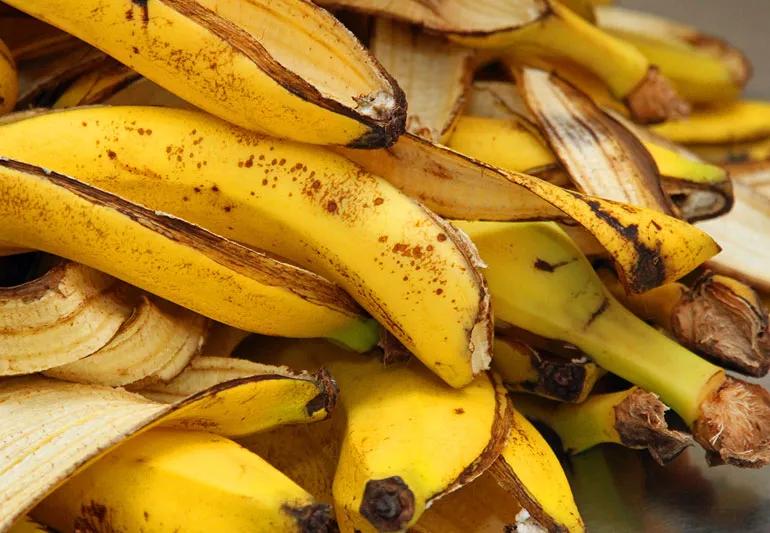
The peel of a banana isn’t of much use to you, except maybe in your compost bin — or is it? Some social media skin care gurus claim that the simple act of rubbing a banana peel on your face can do wonders for your skin.
Cleveland Clinic is a non-profit academic medical center. Advertising on our site helps support our mission. We do not endorse non-Cleveland Clinic products or services. Policy
Can it really be that simple? Just throw a banana in your smoothie and then rub the peel on your face? Not so fast, says dermatology resident Taylor Bullock, MD. He weighs in on whether there’s really any real benefit from this DIY skin care hack.
TikTokkers will have you believing that rubbing a banana peel on your skin is the equivalent of waving a magic wand. They say it can:
All of that sounds great, but there’s a catch: It probably doesn’t work. “There’s no scientific evidence to suggest that rubbing a banana peel on your face is going to help,” Dr. Bullock says.
Even though banana peels haven’t been proven to do anything for your skin, there is some science behind the theory.
“Bananas are very rich in antioxidants,” Dr. Bullock notes. “Antioxidants are naturally occurring substances that are great for your body, including your skin, and they’re a great addition to your skin care regimen.”
A 2011 study found that banana peels, in particular, have high levels of antioxidants, and the peels of unripe bananas have more antioxidants than those of ripe and overripe bananas.
But what are antioxidants, anyway, and just what can they do? To understand them, let’s first back up and talk about skin damage.
Plenty of things can cause damage to your skin, including a phenomenon called oxidative stress. It happens when unstable molecules known as free radicals bind to your cells, which can change their DNA or alter their cell membranes.
“Oxidative stress can come from the sun or the environment, like smoke and pollution,” Dr. Bullock explains. “It can also just happen as part of the way our normal skin metabolism works. This oxidative stress then speeds up the aging process by decreasing the amount of collagen and elastin fibers in skin. Visually, this shows up as wrinkles, sagging, texture changes or skin discoloration.”
But antioxidants fight free radicals, which reduces oxidative stress. This makes them an important skin care ingredient — but you’re not necessarily going to get them from a banana peel, no matter how ripe it is.
“In theory, you could probably get some antioxidants by rubbing the peel on your skin,” Dr. Bullock says, “but if your goal is to have a skin care routine full of antioxidants, you’re much better off applying an antioxidant-rich skin care product to your face instead.”
It’s tempting to believe in the power of a skin fix as inexpensive and easy as banana peels, but in reality, the benefits are minimal, if they exist at all. If you’re looking for antioxidants, stick to products formulated specifically to benefit your skin.
Dr. Bullock suggests a few sources of natural antioxidants. You can buy them as standalone oils (just use a tiny bit!) or look for serums and other products that list them as an ingredient.
There’s no denying that bananas are great for you — when you eat them. So, keep composting those peels and stick to skin care products that are designed to do what you need them to.
To learn from a dermatologist on related topics, listen to the Health Essentials Podcast episode, “Skin Care Tips, Tricks and Trends.” New episodes of the Health Essentials Podcast publish every Wednesday.